| 1. A three-pronged strategy to rescue workers | 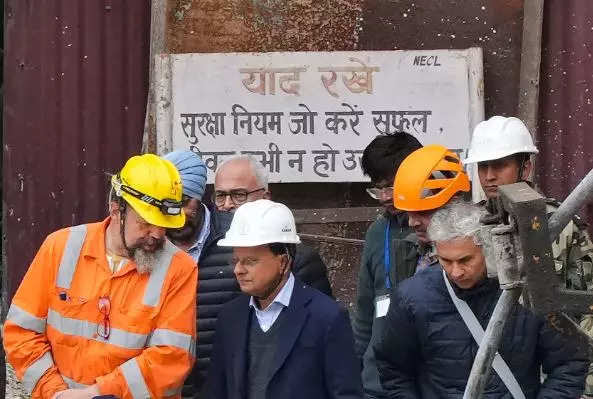 | What- Authorities engaged with the task of rescuing 41 workers trapped in a collapsed under-construction tunnel since November 12 in Uttarakhand's Uttarkashi are now pinning their hopes on human power.
- Rat-hole miners began the drilling work on Monday evening. The authorities resorted to human drilling in addition to the ongoing top-down drilling in the Silkyara tunnel in Uttarkashi.
- Manual drilling was opted after the auger drill — a corkscrew-like device with a rotary blade at the front end — which had drilled up to 46.8 metres busted as it hit several hurdles on the way and got entangled in a girder in the debris.
The new rescue plan- Vertical and manual horizontal drilling are the two methods on which rescue efforts are being focused at the moment.
- Work on the other options, such as horizontal drilling from the tunnel's Barkot (the other) end is also underway.
- A total of 86 metres have to be drilled vertically to prepare an escape passage.
- Pipes of 1.2 metres in diameter have to be laid vertically through the top of the tunnel on which work began on Sunday as a second option to reach the stranded labourers.
Challenges galore- National Disaster Management Authority (NDMA) member Lt Gen (retd) Syed Ata Hasnain said, "The broken blades of the auger machine have been fully retrieved. There were some obstacles while retrieving the broken part, but the damage has been fixed."
- When asked about a tentative timeline, Hasnain said, "It is very difficult to suggest any timeline for completion of rescue operations."
- Meanwhile, National Highways and Infrastructure Development Corporation Limited MD Mahmood Ahmad said the work of the vertical drilling at Uttarkashi tunnel where 41 workers remained trapped would be completed by November 30.
- Both private and public agencies are involved in the rescue operation. More here
| |
|
|
|
| 2. Why EC stopped a govt scheme in Telangana | 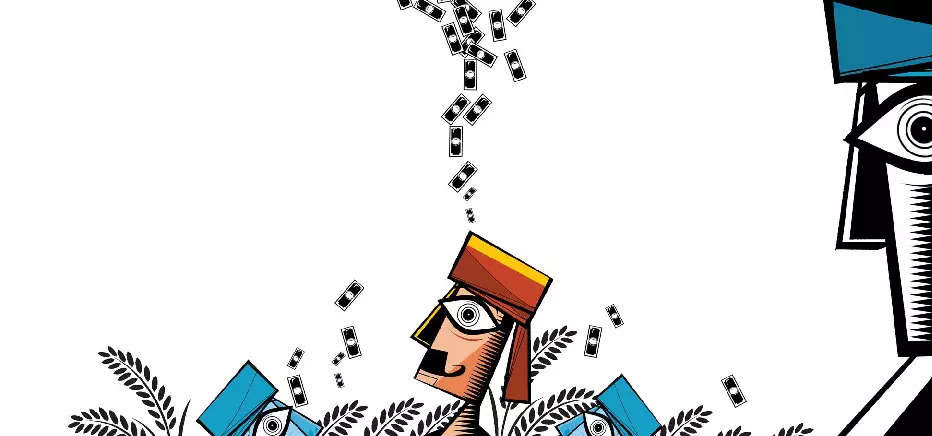 | What- The Election Commission (EC) on Monday withdrew permission to the government in poll-bound Telangana for granting financial aid to farmers for rabi crops under CM K Chandrashekar Rao's pet scheme 'Rythu Bandhu'.
Why- The poll panel had given its nod to the state government to disburse the rabi instalment during the model code of conduct period on certain conditions.
- It had asked the KCR government not to publicise the disbursement while the poll code was in place.
But...- The poll body said it was forced to act after Telangana minister T Harish Rao made a public announcement about the disbursement of funds. The EC treated it as a violation of the model code of conduct.
- The EC conveyed a stern message to the state electoral officer, stating that the public announcement disturbed the level-playing field in the ongoing election process.
- It directed the immediate withdrawal of permission for disbursement under the scheme until the poll code in Telangana ceases to be in operation.
A direct cash-transfer scheme- KCR launched the Rythu Bandhu scheme, also referred to as the Farmer's Investment Support Scheme (FISS), in 2018 as a welfare program aimed at supporting farmers.
- Under the Rythu Bandhu Scheme, farmers receive financial assistance of Rs 10,000 per acre annually in two tranches during Rabi and Kharif seasons, directly transferred to their accounts.
What model code prohibits- The model code of conduct prohibits ministers and authorities from announcing financial grants or making promises from the time elections are announced until their conclusion.
- The scheme has been a focal point in the election campaigns of major political parties in Telangana, which goes to polls on Thursday.
Political reaction- The Congress criticised the ruling Bharat Rashtra Samithi after the EC action, calling it "irresponsible and self-serving".
| |
|
| 3. 'NGOs fueling ethnic tension in Manipur' |  | A report- In its ground-situation report on the ethnic conflict in Manipur, the Supreme Court-appointed committee has accused state NGOs of preventing cremation of 88 bodies preserved at mortuaries in Imphal, obstructing acceptance of ex gratia by kin, and attempting to keep the ethnic cauldron boiling.
What is says- After the first field visit by the committee, headed by former Jammu & Kashmir Chief Justice Gita Mittal, its report filed in the Supreme Court said 88 of the 94 unclaimed bodies preserved in three mortuaries at Imphal have been identified but the civil society organisations (CSOs) active in the state are "exerting tremendous pressure" on kins, or those who are willing to perform last rites, telling them not to accept the bodies.
- It also said, "Apprehension was also expressed that there are elements interested in maintaining tension between communities and preventing restoration of peace and harmony in the state. For this reason, true and correct facts of the matter are also not being placed before the Supreme Court (by some of the petitioner NGOs)."
What CSOs are up to- The report said that the state government, keeping in mind the relevant factors, had identified nine places for cremation and burial of victims of ethnic violence and allowed the kin to choose any of these for the last rites of their deceased relatives.
- "Unfortunately, the CSOs are insisting on mass burial at unsuitable spots which will serve as a source for constant mounting of tension between communities in Manipur and preventing restoration of normalcy," the report said.
- On August 3, the CSOs attempted to illegally perform mass burial at a government sericulture farm resulting in thousands of people marching to the site, thus creating a law-and-order situation. Only with the intervention of the central government the performance of mass burial was postponed, it said.
Recommendations- The committee requested the Supreme Court to direct CSOs not to interfere in the acceptance of bodies for performance of last rites and ex gratia by the relatives.
- It said if the bodies are not accepted by the relatives within a specified time span, the authorities must be directed to carry out the last rites free of charge as per the Manipur Municipalities Act, 1994.
| |
|
| 4. Indian envoy heckled at US gurdwara | 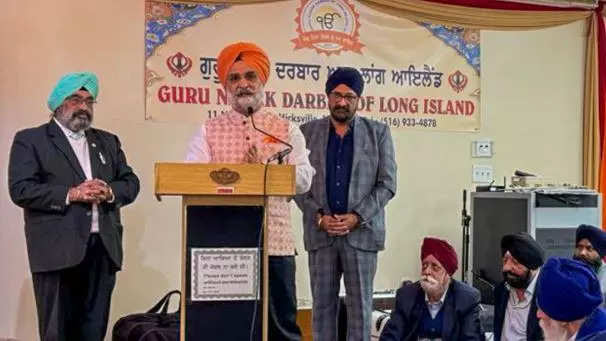 | Ambassador heckled- In a case of security breach, India's Ambassador to the US Taranjit Singh Sandhu was heckled at a New York gurdwara, where he had gone to offer prayers on the occasion of Gurpurab.
- The incident happened in New York's Long Island.
- Sandhu and diplomats accompanying him were escorted out by members of the Sikh community for their safety.
The timing- This happened days after MEA spokesperson Arindam Bagchi said that the US shared some inputs pertaining to the nexus between organised criminals, gun runners, terrorists and others, which are a cause of concern for both countries and they decided to take necessary follow-up action.
- It also came about a week after the NIA registered a fresh case against 'listed individual terrorist' Gurpatwant Singh Pannun over his latest viral video threatening the passengers flying on Air India with a global blockade and closure of the operations of the airline from November 19.
The incident- The pro-Khalistan elements shouted at Sandhu, accusing him of plotting against Khalistani terrorists including Hardeep Singh Nijjar, who was killed in Canada in June this year. Nijjar was the coordinator for the Canadian Chapter of the Khalistan Referendum.
- A video clip of the heckling incident surfaced on social media.
- The hecklers also accused Ambassador Sandhu of being part of a purported plot to assassinate Pannun on US soil.
At gurdwara- Sandhu, accompanied by Consul General in New York Randhir Jaiswal and Deputy Consul General Varun Jeph, told the Sikh community members at the gurdwara that Indian diplomats in the US would provide all help and support to them.
- The gurudwara members and officials honoured and felicitated the Indian ambassador on the occasion.
| |
|
| NEWS IN CLUES | | 5. Identify this prestigious award | Clue 1: It started in 1969, named after the company which sponsored it
Clue 2: Five Indian-origin persons have won it so far
Clue 3: It is open only for English-language novels published in UK and Ireland
Scroll below for answer
| |
|
| 6. 'Marriage is not about accessing spouse's biometric data' | 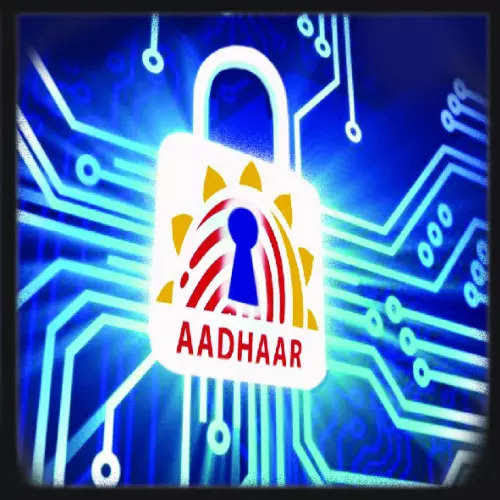 | What- The Karnataka High Court has ruled that a woman cannot unilaterally access her husband's Aadhaar data based solely on the marital relationship, emphasising the autonomy and privacy rights within the legal framework.
- The court held that marriages don't diminish an Aadhaar card-holder's right to privacy, emphasising the need to follow prescribed procedures.
The plea- The ruling came in response to a woman's petition seeking her estranged husband's Aadhaar number, enrolment details, and phone number to enforce a family court's maintenance order.
Why this case- The couple tied the knot in November 2005 and has a daughter.
- Following relationship troubles, the woman initiated legal proceedings, leading to the family court granting her Rs 10,000 as maintenance and an additional Rs 5,000 for their daughter.
- Enforcement challenges arose due to the husband's unknown whereabouts.
- The woman approached UIDAI, but her application was rejected, necessitating a high court decision under Section 33 of the Aadhaar Act.
- The woman received a favourable decision from a single bench on February 8, following which UIDAI was directed to issue a notice to the husband.
- But now, the division bench has instructed UIDAI to reconsider the application under the RTI Act.
The right to privacy- The woman argued that marriage implies a merging of identities, justifying access to a spouse's information.
- Referring to the Supreme Court's observations, the division bench highlighted an individual's right to privacy and the autonomy of presenting their case.
- It said marriage does not eliminate the procedural right of hearing under Section 33 of the Aadhaar Act.
- The HC said decision under Section 33 is a non-delegable duty and remitted the matter to the single bench for fresh consideration.
| |
|
| 7. Who should appoint judges in the lower judiciary? |  | What- There seems to be a renewed push from the Centre to the long-pending proposal of constituting an All-India Judicial Services (AIJS) for direct recruitment of judges in the lower judiciary.
- President Droupadi Murmu in her speech at the Constitution Day celebrations in Supreme Court premises on Sunday stressed on the importance of a UPSC-like body for the judiciary.
- "There can be an All-India Judicial Service which can select brilliant youngsters and nurture and promote their talents from lower levels to higher levels. Those who aspire to serve the Bench can be selected from across the country to create a larger pool of talent. Such a system can offer opportunities to the less-represented social groups too," she said.
Speech decoded- Supreme Court and high court judges are appointed through recommendations of the Collegium, which consists of the CJI and the four senior-most judges in the top court.
- So, the President's recommendation leaves room only for selection of judges in the lower judiciary.
- That's broadly the idea of the AIJS, which has been pending for decades now, mainly due to opposition from states.
How it happens- Currently, selection of judicial magistrates, district judges and sessions court judges are done by state high courts.
A long history- The Law Commission had in 1958 recommended the setting up of AIJS. It reiterated its recommendation in reports filed in 1978 and 1986.
- The idea was last given a renewed push in 2020, when the Centre told the Parliament that All-India Judicial Services is important to strengthen the justice administration system across the country and a national-level merit-based selection system would pave the way for the induction of suitably qualified legal talent.
- But, in 2022, then-Union law minister Kiren Rijiju told the Rajya Sabha that there's no proposal to implement All-India Judicial Services due to lack of consensus among several state governments and high courts.
Good or bad?- Supporters of the idea argue that AIJS will address the issue of social inclusion by ensuring more representation to people from deprived sections in the lower judiciary.
- However, several states have been strongly opposing AIJS asserting that it dilutes their powers and goes against the spirit of federalism.
| |
|
| 8. How long can Israel-Hamas 'pause' last? | 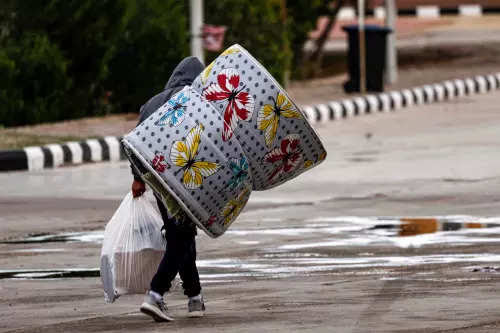 | Truce reinforced- Israel and Hamas extended the ongoing four-day truce for two more days late Monday night, reports quoting Egyptian officials said.
- Egyptian, Qatari and US negotiators were working for an extension of the truce in Gaza that expired on Monday amid rising international pressure to roll over a deal that paused seven weeks of fighting.
- Palestinian group Hamas reportedly sought a four-day extension while Israel wanted day-by-day extensions, with a cap of five days.
A different deal- The extension of the truce would include the release of 20 Israeli hostages from among those seized by Hamas during its October 7 raids into southern Israel.
- In exchange, 60 Palestinian prisoners held in Israeli jails would be freed.
The exchange- As the four-day truce was to end on Monday night, Hamas was expected to release 11 Israeli hostages, and Israel was to free 33 Palestinians from its jails.
- This would take the total number of hostages released by Hamas to 69 including 50 Israeli nationals, as per the deal.
- By Sunday, Israel had already released 117 Palestinian prisoners.
- Before Monday's release of hostages, Israel had put the number of hostages still held in Gaza at 184, including 14 foreigners and 80 Israelis with dual nationality.
What it means- The truce agreed last week was the first halt in the fighting that began with Hamas attacking Israel, killing 1,400 people and taking about 240 hostages back into Gaza.
- In response, Israel bombarded the enclave and mounted a ground offensive in north Gaza. Some 14,800 Palestinians were killed, and hundreds of thousands displaced.
How long will it last?- Israeli PM Benjamin Netanyahu has said he will press ahead with the war after the ceasefire expires with the aim of crushing Hamas's military capabilities and ending its 16-year rule over Gaza.
- That would likely mean expanding a ground offensive from devastated northern Gaza to the south, where hundreds of thousands of Palestinians have crammed into United Nations shelters. More details here
| |
|
| 9. Why New Zealand is rolling back its smoking ban law | 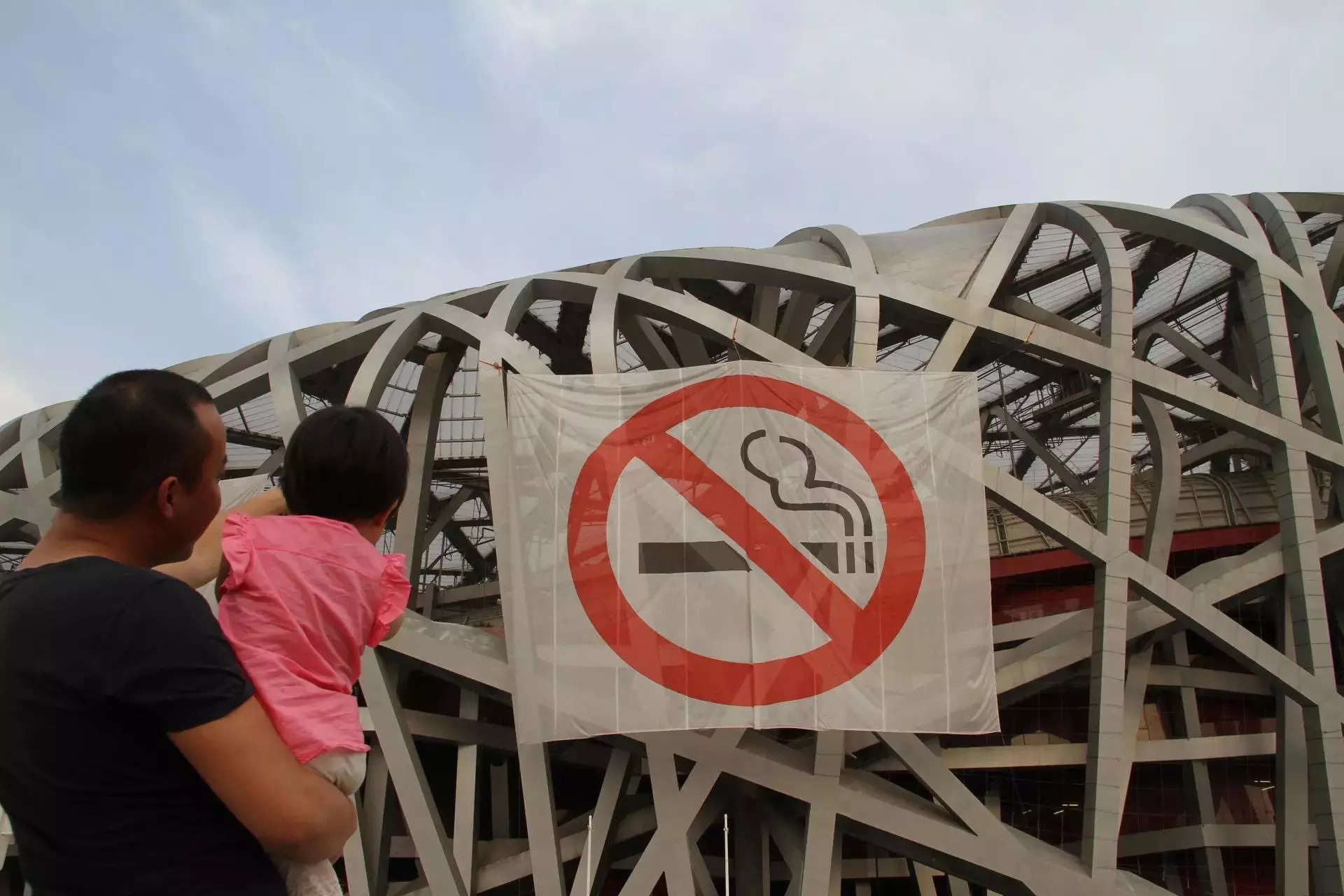 | No ban- New Zealand's new centre-right coalition government has said that it will scrap the country's smoking ban - which was a first of its kind in the world - to fund tax cuts.
Why such a law- The legislation, introduced under the previous Jacinda Ardern-led government, would have banned from January 1, 2024, the sale of cigarettes to any individual born on or after January 1, 2009.
- The policy aimed to stop younger generations from taking up smoking, which is believed to be the leading cause of preventable deaths in New Zealand.
Economy of smoke- It is estimated that the law, if implemented, would have cut the number of retailers able to sell tobacco in New Zealand by more than 90%.
- New finance minister Nicola Willis said: "The changes to the Smoke-free legislation had a significant impact on the government books, with about a billion dollars there."
But- Health Coalition Aotearoa, a prominent anti-tobacco advocacy group in New Zealand, has cited academic research that found the laws could have saved some $1.3 billion in health system costs over 20 years.
- "This is (a) major loss for public health, and a huge win for the tobacco industry - whose profits will be boosted at the expense of Kiwi lives," Boyd Swinburn, co-chair of Health Coalition Aotearo, told Reuters.
Also- Sarah Jackson, Principal Research Fellow in the University College London Tobacco and Alcohol Research Group, told the news agency that the decision could threaten plans in other nations, especially the UK.
- UK Prime Minister Rishi Sunak too has been working towards bringing a similar smoking ban for younger people.
| |
|
|
| Answer To NEWS IN CLUES |  | Booker Prize: Irish writer Paul Lynch won the 2023 Booker Prize for his novel 'Prophet Song', the story of a family and a country on the brink of catastrophe as an imaginary Irish government veers towards tyranny. The novel, Lynch's fifth, seeks to show the unrest in Western democracies and their indifference towards disasters such as the implosion of Syria.
COURTESY : TIMES TOP 10 |
|
No comments:
Post a Comment